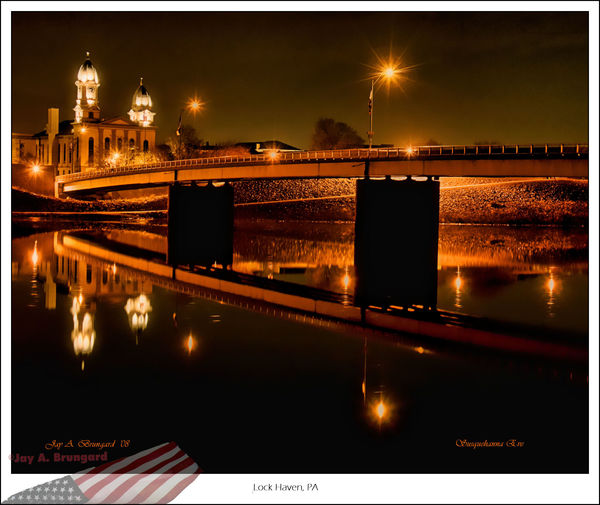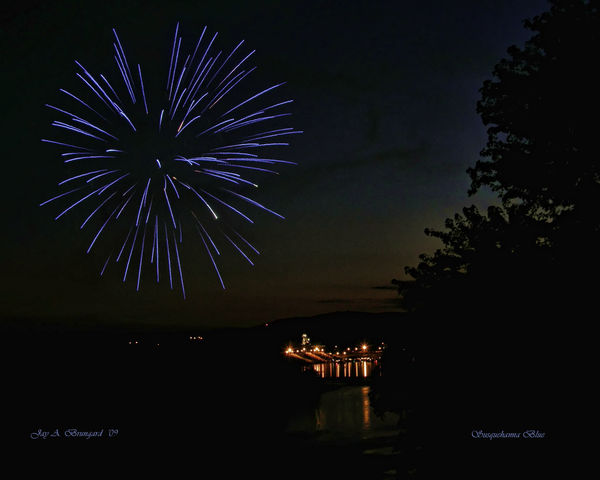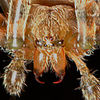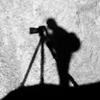Night Photography
Nov 9, 2012 21:55:21 #
:lol: I know so little about this topic,would appreciate some sugestions on this subject.I'm new to the forum world I've been kinda sitting back taking in all the conversations.I must admit it can get very interesting.
thanks
Shooter88
thanks
Shooter88
Nov 9, 2012 21:57:10 #
Nov 9, 2012 22:43:59 #
Nikonian72 wrote:
What subjects do you want to photograph at night?
Even though I'm not the original poster.....I'd love any general tips you could give for shooting cityscapes at night. There is a 40 story building here in Phoenix that has a beautiful view at night.
Nov 9, 2012 22:48:20 #
shooter88 wrote:
:lol: I know so little about this topic,would appreciate some sugestions on this subject.I'm new to the forum world I've been kinda sitting back taking in all the conversations.I must admit it can get very interesting.
thanks
Shooter88
thanks
Shooter88
You can use the Search link above, and I can give you some references when I get on my computer in the morning. Night photography is a nice change.
Nov 9, 2012 23:52:35 #
Nov 9, 2012 23:55:57 #
rcirr wrote:
Even though I'm not the original poster.....I'd love any general tips you could give for shooting cityscapes at night. There is a 40 story building here in Phoenix that has a beautiful view at night.
Nikonian72 wrote:
What subjects do you want to photograph at night?
Even though I'm not the original poster.....I'd love any general tips you could give for shooting cityscapes at night. There is a 40 story building here in Phoenix that has a beautiful view at night.
Here's what I recommend for cityscapes: Use a tripod. Scout ahead of time. Shoot on a week day evening ( or morning) because many buildings now shut off their lights on week-ends. Try to time your photographs for late fall & early spring when you have a better chance of having office buildings lit before shutting down for the night (after 5 pm) and try to have some light in the sky- ideally clouds with some color. If there's a river or lake- go for the reflections.
Nov 10, 2012 01:13:37 #
Shooter, good stuff. I always shoot on manual and manual focus. Use the live view to focus then turn it off. Chimp or "gasp" use a meter. Try the blue hour(actually about 15 mins.).
Nov 10, 2012 01:52:58 #
LoneRangeFinder wrote:
quote=rcirr quote=Nikonian72 What subjects do yo... (show quote)
Thank you for your suggestions. Now if you could only figure out how I can get some time to shoot....ah well. There are some things I have to figure out myself!
Nov 10, 2012 02:21:27 #
rcirr wrote:
quote=LoneRangeFinder quote=rcirr quote=Nikonia... (show quote)
Rcirr, no need to figure anything out youself. Just ask, you'll get lots of isuggestions on how to make time to shoot. Some will be very creative!
Nov 10, 2012 05:14:25 #
andrew.haysom
Loc: Melbourne, Australia
As long as you use a sturdy tripod, then just have the camera on "Aperture Priority" and it's really the same as day except longer exposures, which isn't a problem if you're on a tripod.
Nov 10, 2012 07:29:15 #
jab49
Loc: Central Pa
I agree that not touching the camera and release or timer is super important. I have found that the only time I use the screen on the back of the camera is during night shots. By adjusting the amount of time the shutter is open I can get a view of my result.


Nov 10, 2012 07:37:31 #
:) Good morning one and all,I'm the original poster for night photography.Well I shoot some moon shots at night,grand kids.But I was trying to prepare myself for some cityscape stuff coming up.The city recently in stalled a new bridge down town.This bridge is lit up with numerous lights,also the city is the back drop from one angle and the other angle the back drop is pretty dark.I really appreciate any feed back on this.
thanks
shooter88
thanks
shooter88
Nov 10, 2012 07:40:57 #
Here are some references.
Night Photography Links
http://www.cambridgeincolour.com/tutorials/night-photography.htm
http://digital-photography-school.com/night-photography
http://www.dslrtips.com/workshops/How_to_take_photos_at_night/manual_long_exposure.shtml
http://www.nikonusa.com/Learn-And-Explore/Photography-Techniques/fu02mdwb/1/Taking-Pictures-at-Dusk-and-at-Night.html
http://www.instructables.com/id/How-to-take-AWESOME-night-photos-WITHOUT-a-tripod/
http://www.basic-digital-photography.com/how-to-take-night-photos.html
http://www.zdnet.com/blog/digitalcameras/how-to-take-clear-pictures-at-night/1967
Within an hour before sunrise and an hour after sunset is a time called Blue Hour. Although your eye will not see it, your camera detect a deep blue in the sky. Thats a great time to shoot.
Night Photography Links
http://www.cambridgeincolour.com/tutorials/night-photography.htm
http://digital-photography-school.com/night-photography
http://www.dslrtips.com/workshops/How_to_take_photos_at_night/manual_long_exposure.shtml
http://www.nikonusa.com/Learn-And-Explore/Photography-Techniques/fu02mdwb/1/Taking-Pictures-at-Dusk-and-at-Night.html
http://www.instructables.com/id/How-to-take-AWESOME-night-photos-WITHOUT-a-tripod/
http://www.basic-digital-photography.com/how-to-take-night-photos.html
http://www.zdnet.com/blog/digitalcameras/how-to-take-clear-pictures-at-night/1967
Within an hour before sunrise and an hour after sunset is a time called Blue Hour. Although your eye will not see it, your camera detect a deep blue in the sky. Thats a great time to shoot.
Nov 10, 2012 07:42:05 #
jab49 I just viewed you photos you posted that is relly nice work.What I also seen was elevation can be a factor.thanks
Nov 10, 2012 08:22:38 #
Greg
Loc: Maryland
While I would never discourage the use of a cable or timer, for long exposures, the milliseconds of vibration you'll get from tripping your shutter or mirror flap is negligible. For exposures shorter than 1 second, it can start to make a big difference. The biggest reason (IMO) for needing a cable release, is you are limited to 30 second exposures without one. And if you are going to get a cable release (wired or wireless), invest in an intervalometer (sp) release as this give you much more flexibility than a simple release, and they can be had on the cheap.
patrickwilson86 wrote:
The number one rule of night scenes is stability. ... (show quote)
If you want to reply, then register here. Registration is free and your account is created instantly, so you can post right away.




